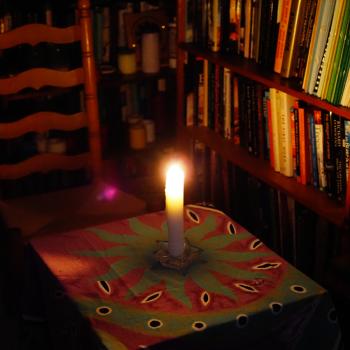In the 1960s, blacks and whites did not often share restrooms, public or otherwise. Jackson, Mississippi, in the heart of the most deeply segregated region of the United States, was indeed a stirred-up fire-ant-bed of social unrest. Medgar Evers was indeed killed. And JFK was indeed shot. The historical accuracy of The Help ends there.
But that does not make it any less of a movie than it would have been were it all true.
The Help tells a story of a group of Mississippi housekeepers and their attempts to gain equality in Jackson in the early 1960s. They are aided in their cause by a young woman named Skeeter who is eager to write a book about "what disturbs" her that no one else is writing about. She's chiefly disturbed by the way in which these black women are treated by the very people they care for, so she compiles the domestic workers' stories and publishes them in an anonymously authored book. "The Help" is the name of the book they write, but the film The Help is told from the perspective of one of the housekeepers, Aibileen. The film is her story.
The Help is as funny and sanitary a movie as I have seen this summer, especially considering its serious and messy subject matter. For all of its two hour and twenty-six minute run time, I was engaged, amused, and touched. The messages and themes are at times a bit explicit, but they are conveyed with such conviction and skill, such genuineness by the performers, the explicitness is easily overlooked. If ever a movie in recent times called for a Best Ensemble Academy Award category, The Help is it. Every woman in the cast is superb.
The Civil Rights Movement of the 1960s serves as the backcloth for The Help, but I did not walk out of the theater with a renewed commitment to racial equality. I left deeply appreciative of women and deeply disturbed by how women are affected by our materialistic culture. To reiterate, The Help, I contend, is not about racism. It's not about sexism either. I saw in The Help a depiction of the destructive power of materialism.
The Help's villain is Hilly Holbrook, a racist, vindictive woman portrayed with vicious glee by Bryce Dallas Howard. Hilly reigns supreme at the apex of Jackson's social pyramid. She is the one lobbying for mandatory separate restrooms for blacks and whites. She is the one who excludes other white women who she feels don't belong in proper society. She is the one whose comeuppance symbolizes victory for the maltreated and misused. The audience is supposed to hate Hilly and all for which she stands.
It worked. For the first hour and forty-five minutes of the film, I hated her with passion. Then I realized the sadness and desperation of her own life. Hilly does not sit enthroned atop a gleaming pyramid. She reigns over a travesty. This is a truth not lost on the filmmakers themselves, as they make clear in Hilly's final confrontation with Aibileen.
Hilly is so desperate to keep everyone else down because all she has is her little self-created kingdom of social standing and wealth. Everything she does is an attempt to shore up the walls of this kingdom. She organizes "coat drives" to remind herself that she is not poor. Her women's committee lies to itself about making "a big dent" in African hunger. Her crusade against the housekeepers is born out of guilt that she is incapable of keeping her house on her own. She must denigrate the black women around her because they are ever present reminders of her own inadequacy and the weakness of her way of life.
Appearances are everything to Hilly and her covey of similarly self-interested wealthy, white women, because appearances are all they really have. The shocking revelation contained in the housekeepers' book isn't that racism runs rampant in Jackson society. It's that Jackson society is a sham.
The white women in Jackson are nothing without their housekeepers. They cannot cook. They cannot clean. They cannot take care of their children. More so, even with those responsibilities shoved off on their housekeepers, The Help demonstrates that the women cannot maintain their way of life, the deeper irony being that the oppressors (the white women) are themselves oppressed by the culture of Materialism.
Even the men in The Help's world are victims of this culture. Where are the men in this story? Conspicuously absent. The white men are always working, taken from their loved ones by the need to provide the lavish lifestyle they all "enjoy." The black men are absent as well, and the few who are discussed are mentioned in the context of abuse, having had no other outlet for their anger than to lash out against the only people they have power over—their wives and children. The black women are indeed at the bottom of this materialistic pyramid of power. Being at the bottom, they form the foundation for the unjust system. When they rebel, everything above them begins to crumble.





